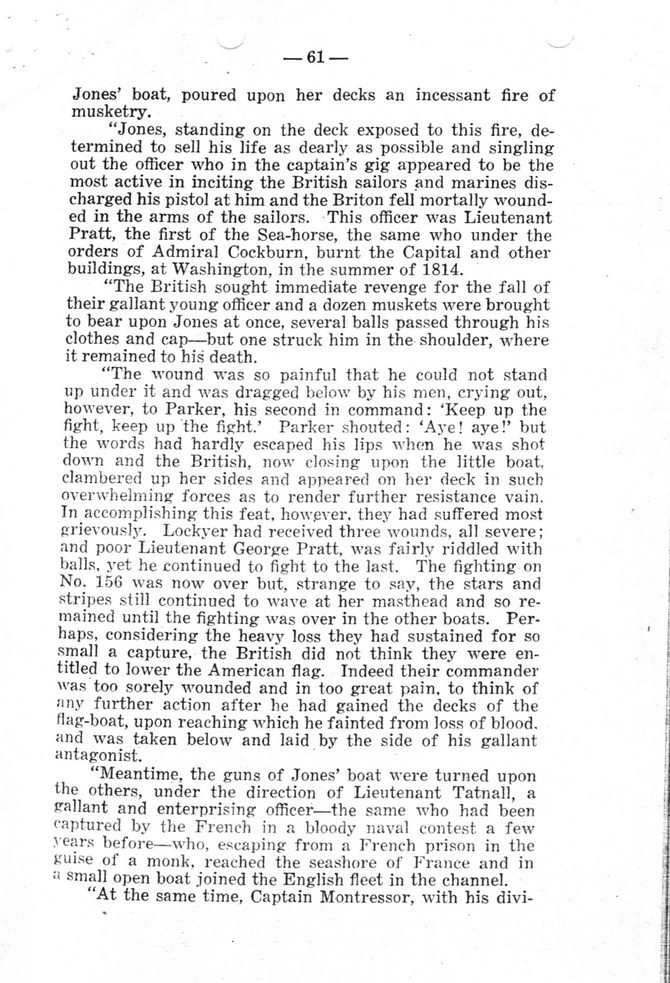This text was obtained via automated optical character recognition.
It has not been edited and may therefore contain several errors.
? 61 ? Jones? boat, poured upon her decks an incessant fire of musketry. ?Jones, standing on the deck exposed to this fire, determined to sell his life as dearly as possible and singling out the officer who in the captain?s gig appeared to be the most active in inciting the British sailors and marines discharged his pistol at him and the Briton fell mortally wounded in the arms of the sailors. This officer was Lieutenant Pratt, the first of the Sea-horse, the same who under the orders of Admiral Cockburn, burnt the Capital and other buildings, at Washington, in the summer of 1814. ?The British sought immediate revenge for the fall of their gallant young officer and a dozen muskets were brought to bear upon Jones at once, several balls passed through his clothes and cap?but one struck him in the shoulder, where it remained to his death. ?The wound was so painful that he could not stand lip under it and was dragged below by his men, crying out, however, to Parker, his second in command: ?Keep up the fight, keep up the fight.? Parker shouted: ?Aye! aye!? but the words had hardly escaped his lips when he was shot down and the British, now closing upon the little boat, clambered up her sides and appeared on her deck in such overwhelming forces as to render further resistance vain. In accomplishing this feat, however. they had suffered most grievously. Lockyer had received three wounds, all severe; and poor Lieutenant George Pratt, was fairly riddled with balls, yet he continued to fight to the last. The fighting on No. 156 was now over but, strange to say, the stars and stripes still continued to wave at her masthead and so remained until the fighting was over in the other boats. Perhaps, considering the heavy loss they had sustained for so small a capture, the British did not think they were entitled to low?er the American flag. Indeed their commander was too sorely wounded and in too great pain, to think of any further action after he had gained the decks of the fiag-boat, upon reaching which he fainted from loss of blood, and was taken below and laid by the side of his gallant antagonist. ?Meantime, the guns of Jones? boat were turned upon the others, under the direction of Lieutenant Tatnall, a gallant and enterprising officer?the same who had been captured by the French in a bloody naval contest a few 'ears before?who, escaping from a French prison in the guise of a monk, reached the seashore of France and in a small open boat joined the English fleet in the channel. ?At the same time, Captain Montressor, with his divi-

Battle of 1814 Battle-of-the-Gun-Boats-Chapter-5-P61